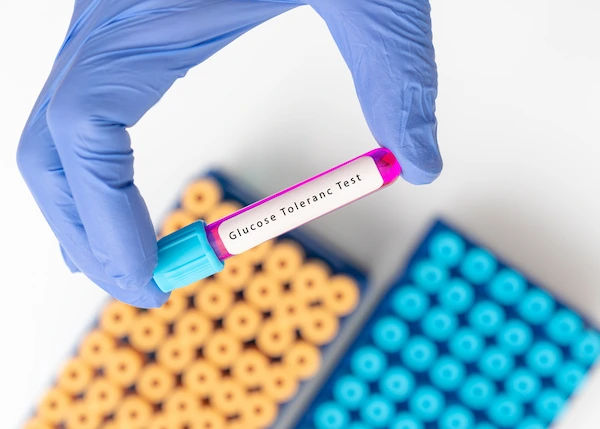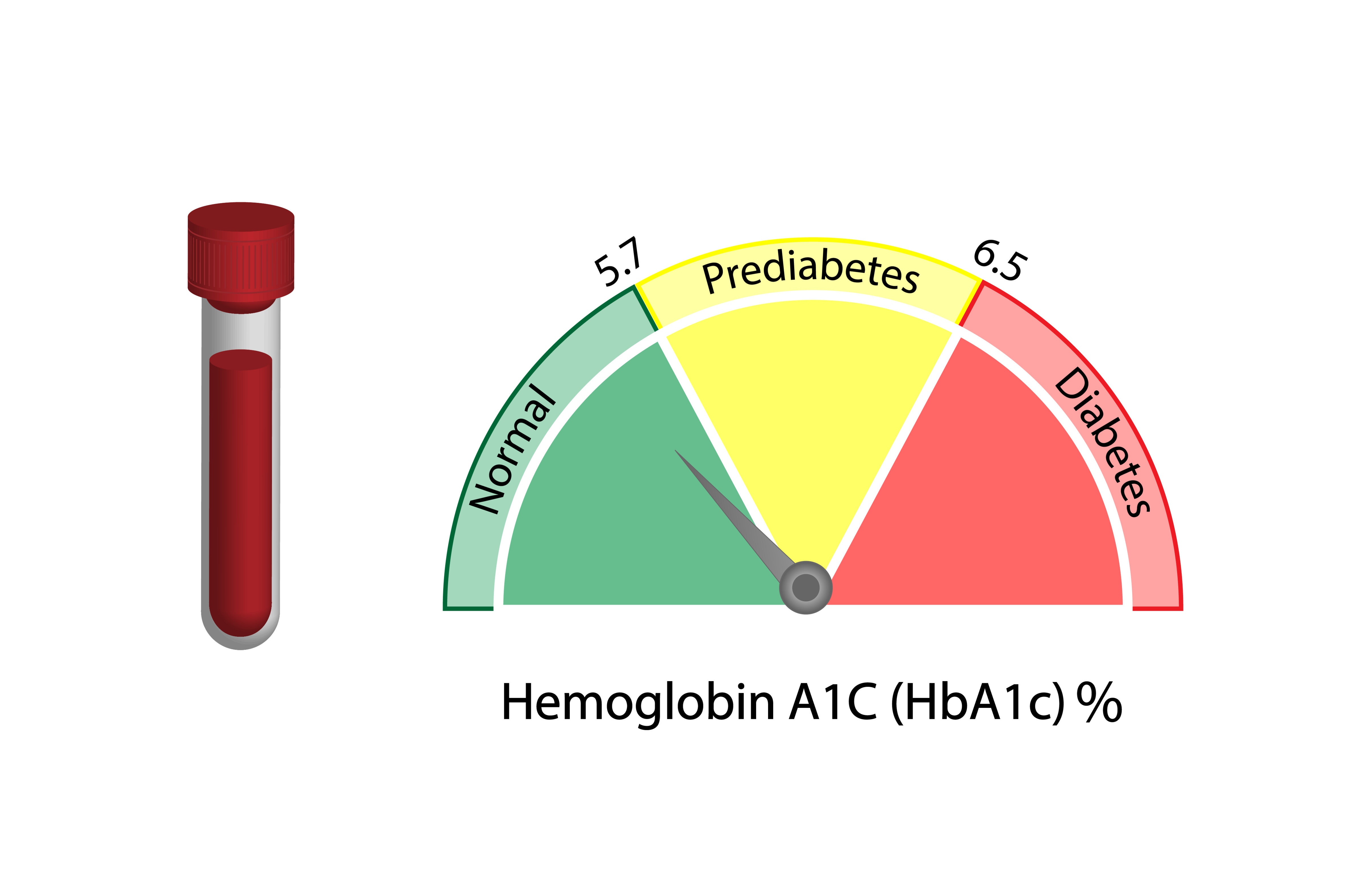Why HbA1c Testing Is Essential for Indian Women with PCOS
Discover why HbA1c testing is crucial for Indian women with PCOS. Learn how this test helps detect insulin resistance and diabetes risk early, enabling timely management for better health outcomes.

Written by Dr. Rohinipriyanka Pondugula
Reviewed by Dr. Md Yusuf Shareef MBBS
Last updated on 9th Sep, 2025

Polycystic Ovary Syndrome (PCOS) is more than just a hormonal imbalance. It is a complex endocrine disorder that is often associated with insulin resistance and impaired blood sugar regulation. It predominantly affects women of reproductive age. In India, the prevalence of PCOS ranges from 3.7 to 22.5 per cent, depending on the population studied, and the criteria used for diagnosis, according to a study. It can be detected among women, especially between the ages of 18 and 35. Hence, early detection of sugar-related dysfunctions has become a health priority.
While symptoms such as irregular periods, hair growth, acne, and weight gain are well-known, the underlying insulin resistance that drives many of these symptoms is less discussed. If left unchecked, insulin resistance can progress gradually to pre-diabetes or type 2 diabetes. One of the most trusted methods for monitoring long-term glucose control and assessing metabolic risk is through an HbA1c test, a simple, non-fasting blood test. One can also opt for an insulin resistance test to determine how effectively the body uses insulin to regulate blood sugar levels.
Women with PCOS must incorporate this test into their regular health checks, as it could help in preventing future complications and personalising treatment plans. This comprehensive blog explores the urgent need for an HbA1c test for PCOS, how it relates to broader metabolic health, and why early testing is crucial, especially for women in the early phases of lifestyle changes or treatment.
Link between PCOS, Insulin Resistance and Sugar Control
It is essential to understand that PCOS can affect more than just the reproductive system. It can directly influence their metabolic function. Polycystic Ovary Syndrome is deeply connected to how the body processes insulin, a hormone responsible for regulating blood sugar levels. As per a study, up to 70% of women with PCOS can experience insulin resistance, even if they do not show outward signs of diabetes. Hence, an HbA1c test for PCOS can show the right direction.
It is essential to understand this connection more clearly:
Book Complete Blood Count (CBC)
What is Insulin Resistance?
It is a condition where the body’s cells do not respond appropriately to insulin. This may result in the pancreas producing more insulin to compensate, leading to higher insulin levels in the blood.
Impact on Ovarian Function
Higher insulin levels help in stimulating the ovaries to produce more androgens (male hormones), which may worsen PCOS symptoms such as acne, irregular periods, and excess hair growth.
Glucose Dysregulation and Weight Gain
If insulin levels get elevated, it may also promote fat storage, particularly around the abdomen. This may further increase the risk of type 2 diabetes.
Progression to Pre-diabetes or Diabetes
Over time, insulin resistance can lead to higher blood glucose levels, which may remain undetected for years until complications arise.
The factors mentioned above lead experts to recommend an insulin resistance blood test or HbA1c test for PCOS patients as part of early risk assessment. This may be recommended even in younger women who are not overweight.
How HbA1c Helps Track Risks Without Fasting?
Among many other blood tests, HbA1c stands out as a reliable and informative diagnostic tool. Unlike fasting glucose or oral glucose tolerance tests, which help measure blood sugar at a single moment in time, the HbA1c test helps reflect average blood glucose levels over the past 2–3 months. This helps in understanding how the body manages sugar long-term, even when fasting or post-meal sugar levels appear normal.
The following points explain why HbA1c is essential for women with PCOS:
- Provides a Broader View of Glucose Fluctuations: The HbA1c test provides a broader view of glucose fluctuations. This guide is for detecting early signs of pre-diabetes or diabetes in PCOS patients, who otherwise feel fine.
- Helps in Early Risk Prediction: A slight elevation (5.7%-6.4%) might signal pre-diabetes. This may enable doctors to intervene before the condition progresses.
- Supports Treatment Decisions: If individuals are already on metformin or other treatments, the HbA1c test helps in assessing how well the therapy is working in improving insulin sensitivity and glucose regulation.
The HbA1c test doesn’t require fasting and can be performed at any time of day, offering convenience to women. For those managing PCOS, an HbA1c test can serve as not just a diabetes test, but as a proactive health tool, especially when metabolic symptoms are subtle or missed.
Get Your Blood Sugar Levels Assessed
Best Time to Test for Women on Treatment
For women who are already undergoing treatment for PCOS, the timing of the HbA1c test can significantly impact its usefulness in measuring improvement. Monitoring blood sugar trends over time are crucial for evaluating whether the diet, exercise, or medication plan is working.
Below is how to plan HbA1c testing based on the PCOS treatment phase:
- Upon First Diagnosis: Doctors may recommend an HbA1c test when PCOS is first diagnosed. This gives a starting point for future comparison.
- 3 Months after Starting Treatment: HbA1c reflects glucose over the past 2–3 months. Hence, a repeat test after 12 weeks may help determine whether insulin resistance is improving with interventions such as metformin, lifestyle changes, or herbal supplements.
- Every 6 Months: For ongoing care, testing twice a year is ideal for tracking trends in blood sugar control and catching early signs of metabolic issues.
- Before Adjusting Medication: If the doctor plans to alter the dose or the treatment plan, an updated HbA1c can inform a more tailored approach.
Whether individuals are on pills, supplements, or non-pharmacological therapies, the HbA1c test for PCOS helps in showing the right direction. It helps in tracking changes that one may overlook externally.
When to Combine with Hormonal Panels?
The haemoglobin A1c test helps provide individuals with a metabolic snapshot. However, to gain a more detailed analysis, pairing it with hormonal analysis is crucial. Since PCOS is both a hormonal and metabolic disorder, combining HbA1c with hormone testing provides deeper insight into how the body is responding. This is especially important when symptoms fluctuate or when fertility is a concern.
Here is when to consider combining the insulin resistance blood test and HbA1c with hormonal panels:
Mood Swings or Unexplained Weight Gain
Thyroid Function Tests (TSH, T3, T4) and cortisol can reveal hidden contributors to insulin resistance.
Missed or Irregular Periods
To assess ovarian function, individuals can add LH, FSH, oestrogen and progesterone levels.
Fertility Planning
For assisting ovarian management and IVF preparation, a full panel including AMH (Anti-Müllerian Hormone), androgens, and prolactin can be recommended.
Plateau in Progress
In cases where there is no improvement in weight loss, skin, or hair symptoms, dual testing may help detect whether insulin resistance or an unaddressed hormonal imbalance remains.
A combined approach can offer a more accurate diagnosis and a tailored treatment path, rather than a one-size-fits-all solution. Labs like Apollo 24|7 offer comprehensive tests, such as the PCOD Comprehensive test (also known as the PCOS test), which can be completed easily and affordably.
Book PCOS + HbA1c Combo Tests via Apollo 24|7
Timely testing may lead to timely healing, and with platforms like Apollo 24|7, lab-quality diagnostics are brought to the fingertips. Recognising the multidimensional nature of PCOS, The platform offers curated diagnostic packages, including HbA1c, fasting insulin and hormonal panels, all in one place. Whether one is just beginning their PCOS journey or is in the middle of treatment, these tests can offer clarity, accuracy, and control.
Here is why thousands of women trust Apollo 24|7 for PCOS testing:
- Comprehensive Panels: Individuals can choose a pre-designed PCOS profile, which includes HbA1c, fasting insulin, testosterone, AMH, LH/FSH ratio, thyroid panel, and more.
- Home Sample Collection: This is convenient for students, working women or homemakers to book their test online and get a visit from a certified and professional phlebotomist at their preferred location and time.
- Certified Labs with Rapid Results: NABL-accredited labs ensure diagnostic accuracy, and most results are delivered within 24 hours.
- Online Consultations: Post-test, individuals can reach out to the platform’s health advisors online for free with any queries or concerns.
- Regular Health Tracking: Individuals can maintain digital records on the Apollo 24|7 app or website and track their test history over time for better treatment planning.
Booking an HbA1c test for PCOS with Apollo 24|7 can be a decisive step toward claiming control over hormonal and metabolic health.
Final Thoughts
PCOS is a full-body syndrome and not just a hormonal condition. It can silently erode metabolic health. However, the good news is that with early detection and consistent monitoring, the risks of insulin resistance and type 2 diabetes can be significantly reduced. The HbA1c test, paired with hormonal and insulin resistance panels, can offer women aged 18-35 a critical tool to fight against PCOS-related complications.
It’s crucial not to ignore the warning signs and investigate what’s happening beneath the surface. Book a PCOS + HbA1c combo test at Apollo 24|7 today and take a step forward toward better health.
Get Your Blood Sugar Levels Assessed
₹649(₹1623)60% off
₹379(₹948)60% off
₹2029(₹5072)60% off
₹699(₹1748)60% off
₹699(₹1748)60% off
₹759(₹1898)60% off







